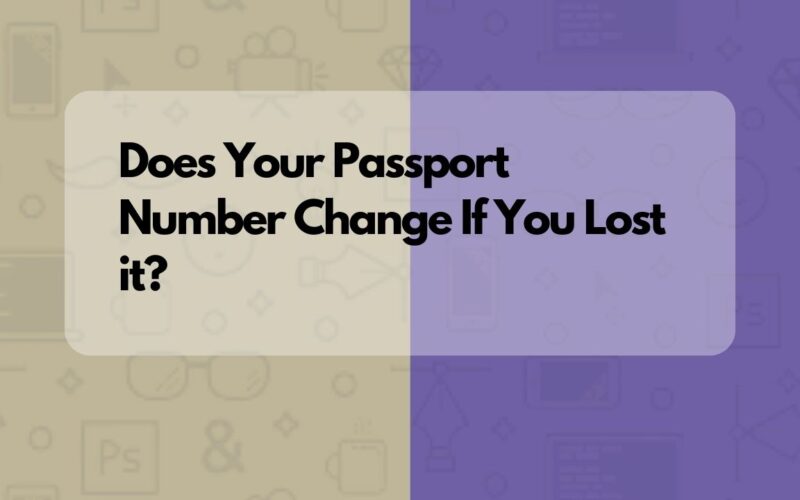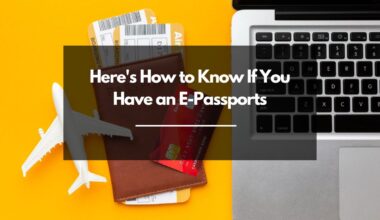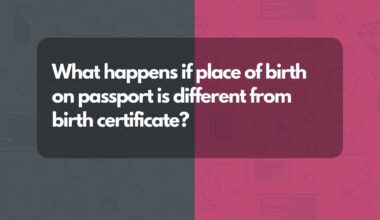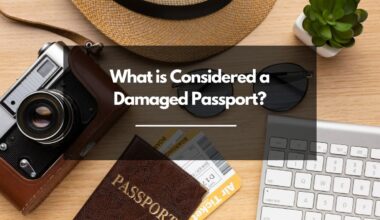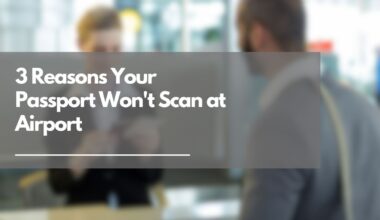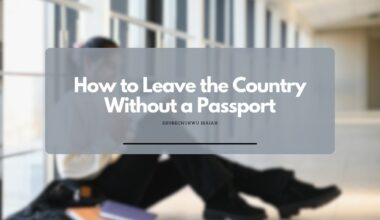As an Amazon Associate, I earn a small commission from qualifying purchases. Learn more about this.
Imagine you lost your passport. You might have many questions, like what to do next or if the new one will have the same number. In this article, we’ll answer these questions properly.
Does Your Passport Number Change If You Lost it? and why?
So, you’ve lost your passport. It’s definitely a moment of panic for most of us. After the initial shock, there are so many questions that pop up. “How do I get a new one?” “How long will it take?” And, of course, “Will my new passport have the same number as the old one?”
Well, let’s clear that up: When you lose your passport and get a replacement, the number on the new passport will be different. The passport number does change.
Why? What’s the reason for this?
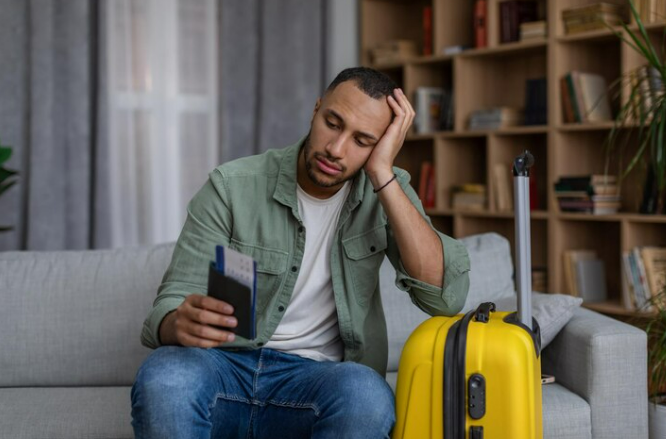
The primary reason is security.
Your passport, as you know, is an important document.
It proves who you are and allows you to travel internationally. If it falls into the wrong hands, it can be misused for illegal activities, identity theft, or even fraud.
Giving a new passport a different number, it ensures that if someone tries to use your lost (or stolen) passport, it can be quickly flagged as invalid or suspicious by the authorities.
This change in number also acts as a safeguard for you.
Imagine someone found your lost passport and, by chance, decided to use it for something not-so-legal. If the passport number remains the same on your new document, any issues arising from that misuse might be linked back to you.
By changing the number, it clearly differentiates between the old and the new, minimizing potential problems for you.
Another reason? Administrative tracking. Every time a passport is issued, reported lost, or stolen, it’s tracked in a system.
Different numbers help in efficiently managing these records, making sure that no two active passports have the same number.
But these also doesn’t make old passports useless, as there are still a number of things they could be used for.
What to Do If You Lose Your Passport
Losing your passport, especially when you’re in a foreign country, can feel like your worst nightmare coming true.
But, before you dive deep into panic mode, act swiftly and follow a few critical steps.
- Report the Loss Immediately: The very first thing you should do after ensuring your passport is indeed lost (and not just misplaced in your bag) is to report it. If you’re abroad, head to your country’s embassy or consulate in that country. They need to know so they can prevent any potential misuse. If you’re at home, contact the passport office or the appropriate authority. This ensures your lost passport gets flagged, and any attempt to use it will be deemed suspicious.
- File a Police Report:This might sound formal, but it’s essential, especially if you suspect theft. A police report can be helpful in two ways: it acts as an extra layer of security, ensuring local authorities are aware, and it can often be required when applying for a new passport or even for insurance claims. Remember to keep a copy of the police report with you – it’ll be handy in the following steps.
- Get Temporary Travel Documents:If you’re overseas and need to travel urgently, don’t panic. Most embassies or consulates can provide you with a temporary travel document, often called an “Emergency Passport“. It’s typically valid for a short duration, just enough to get you back home or continue essential travel. Remember, this isn’t a full replacement. Once you’re back in your home country, you’ll still need to apply for a regular passport. If your passport just expired and not lost, some countries could accept you under strict conditions.
- Apply for a New Passport: Once you’ve navigated the immediate aftermath of losing your passport, it’s time to get a new one. The process might vary slightly depending on your country, but in general, you’ll need to fill out a new application form, provide proof of citizenship (like a birth certificate), and often, details about the lost passport (like when and where you think you lost it). Don’t forget to mention that it was lost, and if possible, provide the old passport number. Remember the police report we talked about? Now’s the time to attach a copy of that with your application.
Conclusion
Losing your passport can be a stressful thing to handle, but it’s important to stay calm and act quickly. And yes, while the new passport you receive will have a different number, it’s all for a good reason – to keep you safe. This is the reason you always need to double-check for your passport, and maybe even consider having a safe place to keep it. Safe travels!
